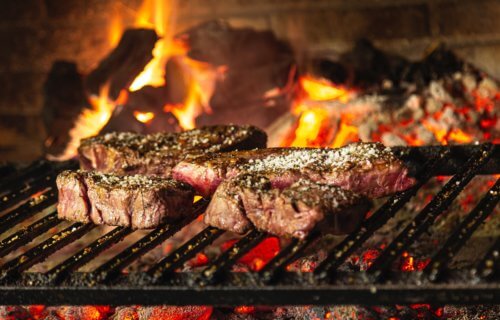NEW YORK — Early-onset colorectal cancer diagnoses have nearly doubled between 1992 and 2013, with the most common variety being rectal cancer. On a related note, doctors are starting to diagnose more and more people under age 50 with CRC. Until now, the exact reasons for this concerning trend were not clear. However, a new study by researchers from NYU School of Medicine finds eating lots of red meat, heavy alcohol use, and a poorer education all show ties to an increase in colorectal cancer risk among younger patients.
“This first large-scale study of non-genetic risk factors for early-onset colorectal cancer is providing the initial basis for targeted identification of those most at risk, which is imperative in mitigating the rising burden of this disease,” says research leader Richard Hayes in a media release.
Going back even further, colorectal cancer rates among Western citizens have steadily risen since the 1960s. Coincidentally, (or perhaps not) the average diet across countries like the U.S., Canada, Japan, and Australia has changed considerably. Generally, people started eating less fruit, vegetables, and calcium-rich dairy sources, and replaced all that with processed foods, pizza, red meat, and soft drinks. Even today, researchers say the average American fails to eat enough daily fiber, folate, and calcium.
Is cancer becoming a young person’s disease?
Surprisingly, colorectal cancer outcomes are actually worse among younger adults than older adults now, a statistic that’s especially troubling when looking at these findings and trends. With that in mind, U.S. health officials have now reduced the recommended age to start colon cancer screenings, dropping it from 50 to 45.
To reach their conclusions researchers pooled together previously collected data from 13 prior studies. All that information encompassed 3,767 colorectal cancer cases and 4,049 controls in people under the age of 50. Meanwhile, the team also included another 23,437 colorectal cancer cases and 35,311 controls in people 50 or above as well.
Besides the three main risk factors mentioned above, the analysis also uncovered evidence suggesting that not regularly using aspirin and alcohol abstinence may increase colorectal cancer risk as well. So, apparently one shouldn’t avoid alcohol all the time.
Also, for what it’s worth, the study specifically links lower total fiber intake to a higher risk of rectal cancer than colon cancer.
The study appears in the journal JNCI Cancer Spectrum.
